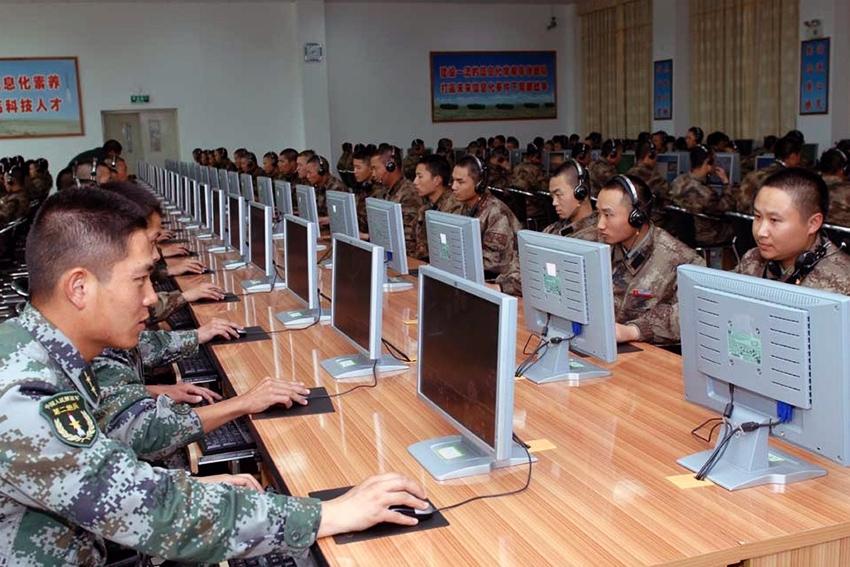Major element of Chinese military modernization is improving ability to launch cyber war
10/14/2015 / By usafeaturesmedia

(Cyberwar.news) China’s dramatic economic rise – recently tempered by a government devaluation of currency and stock market plunge – over the past two decades has provided Beijing with new resources with which to modernize its military.
According to Foreign Affairs, China’s military budget has risen by double digits each year beginning in 1997, to its current level of about $145 billion, making Beijing the world’s second-biggest defense spender after the U.S. (and above others like France, Russia, Japan and Great Britain). A significant portion of Chinese military expenditures are devoted to improving the nation’s cyber warfare capabilities, according to Fierce Government IT, which quoted a newly released report from the Center for Strategic and International Studies.
In early 2014 after Chinese President Xi Jinping took control of the Central Internet Security and Informatization Leading Group, the state-run news agency, Xinhua, said he viewed Internet security as “a major strategic issue concerning a country’s security and development as well as people’s life and work,” the Washington, D.C.-based CSIS said in its Sept. 1 report [PDF].
The news agency said the president also added that “efforts should be made to build our country into a cyber power,” according to the CSIS report. And later that year Xi issued official guidelines directing the People’s Liberation Army to develop cyber defensive capabilities.
The report further noted that cyber warfare was a major concern for the country’s most senior officials.
Authored by long-time CSIS defense and security analyst Anthony Cordesman and colleague Steven Colley, a former researcher with the think tank, the 600-plus page report focuses on key trends in China’s military modernization efforts, as well as China’s strategy and forces, which in turn influence U.S. strategy as well as that of regional powers. It draws heavily on Defense Department reports to Congress regarding Chinese military progress and modernization, as well as Chinese security white papers and those of Japan, South Korea and Taiwan.
The authors noted that a Chinese white paper published this year described cyberspace as a “critical security domain” and the nation is facing “grave security threats to its cyber infrastructure.”
“As cyberspace weighs more in military security, China will expedite the development of a cyber force, and enhance its capabilities of cyberspace situation awareness, cyber defense, support for the country’s endeavors in cyberspace and participation in international cyber cooperation, so as to stem major cyber crises, ensure national network and information security, and maintain national security and social stability,” according to the white paper, cited in the CSIS report.
The Chinese military is moving toward a new “information confrontation” concept that sees integration of non-electronic and electronic information warfare under a single command, said the report. Also, the People’s Liberation Army sees the concept as a national exercise during both war and peace “as information sovereignty is an important aspect of national power,” it says.
The authors further noted that China views cyber warfare as a psychological operations tool, much like public diplomacy, propaganda and interference with local media.
“Such operations target ‘the emotions, motives, objective reasoning, and behavior of a specific, targeted audience’ and essentially attempt to degrade American will to sustain a conflict,” according to the CSIS report. “This would appear to be one way to take advantage of what the Chinese perceived to be an extreme aversion to casualties by Americans.”
Follow Cyberwar.news editor Jon E. Dougherty on Twitter and Google+.
See also:
Tagged Under: chinese military modernization, cyber war




















